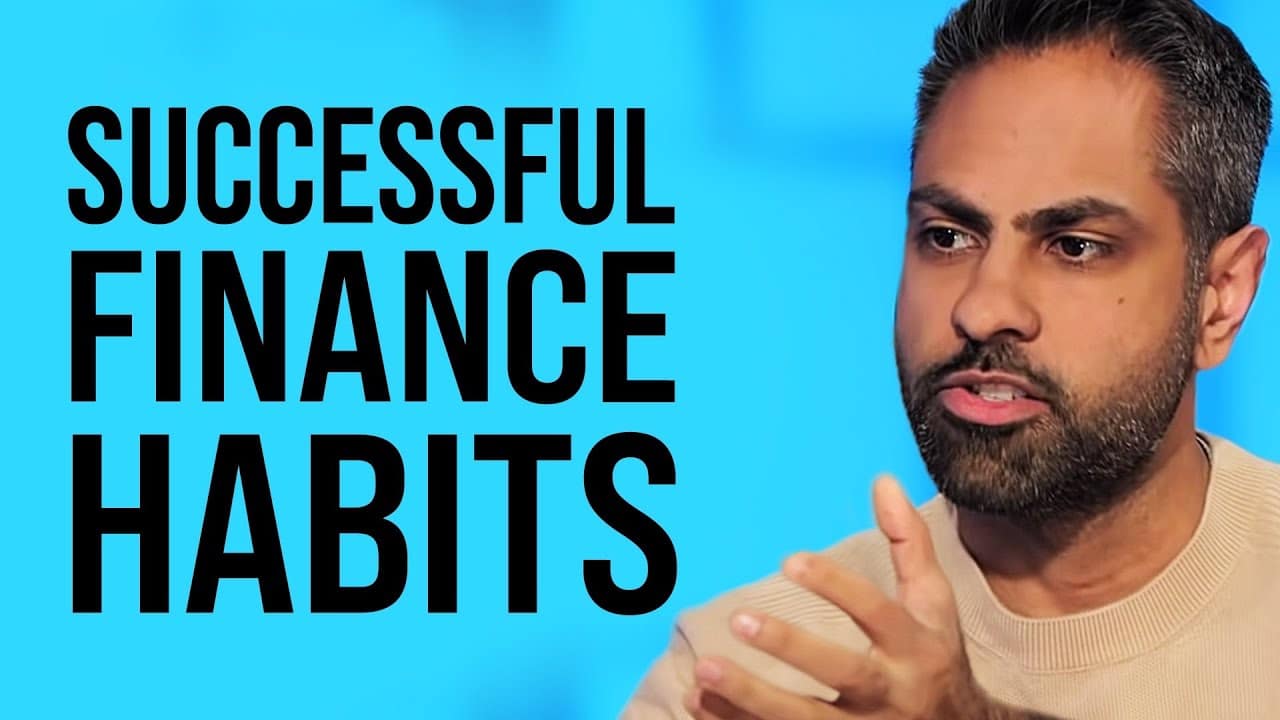*****
Summary of Transcript:
The video is an interview with a financial expert who believes that instead of focusing on money, people should focus on giving to the world and providing service. He notes that money results from serving the world and that wealthy families do not necessarily produce superstars. He discusses the importance of defining new values and having the right attitude toward money to achieve happiness. The expert also talks about his study of Zen and his mentor’s teaching to forget about money, which he interprets as focusing on giving and receiving. He defines wealth as an attitude of happiness and contentment rather than a specific amount of money. Finally, he acknowledges the power of money but notes the importance of aligning behaviors with values to generate actual wealth.
*****
Summary of Description:
In this episode of Impact Theory, sponsored by Skillshare, Tom Bilyeu shares his views on money and financial success. He collates advice and experiences from past guests on the show, including Ken Honda on shifting focus around wealth, David Rubenstein on raising children in wealthy families, Ramit Sethi on rewriting invisible scripts around money, Tilman Fertitta on finding your God-given gift, and Yancey Strickler on new ways of measuring value. The episode offers insights into defining success, creating and monetizing long-term value, and finding happiness and contentment.
*****
How to Master the Game of Money: Lessons from Successful Entrepreneurs
Money is an essential part of our lives, but it can also be a source of stress, anxiety, and even unhappiness. How we relate to money and financial success can significantly impact our levels of fulfillment and happiness. In this episode of Impact Theory, host Tom Bilyeu curates some of the best insights on money and wealth from past guest interviews featuring successful entrepreneurs Ken Honda, David Rubenstein, Ramit Sethi, Tilman Fertitta, and Yancey Strickler.
Shift Your Focus Around Wealth with Ken Honda
Ken Honda, the author of Happy Money and Zen Millionaire, believes wealth is an attitude. Even if you have billions in your bank account, you are not truly wealthy if you cannot find happiness in your personal life or business. According to Honda, shifting one’s focus around wealth can help increase happiness and fulfillment. Instead of solely focusing on profits, business owners should focus on serving their communities and positively impacting the world.
Raising Children of Wealth with David Rubenstein
David Rubenstein, the co-founder of The Carlyle Group, draws on his experience growing up in a financially comfortable family to discuss the challenges of raising wealthy children. Rubenstein believes raising children is complicated, and if parents mess up raising their kids, nothing else in life matters. He notes that it is essential for wealthy families to impart good values and work ethics to their children and teach them how to manage their finances wisely.
Rewrite Your Invisible Scripts with Ramit Sethi
Many people have negative beliefs about money, such as that they can’t make money or that money is hard to come by. Ramit Sethi, the author of I Will Teach You To Be Rich, believes anyone can improve their financial situation. Still, first, people must rewrite their invisible scripts around money. Sethi suggests surrounding oneself with people with a positive mindset around money and teaches strategies such as automating savings and investing in long-term assets to build wealth over time.
Forge Your Path in Business with Tilman Fertitta
Tilman Fertitta, owner of the Houston Rockets and author of Shut Up and Listen!, shares his success story of going from being a waiter to a multimillionaire entrepreneur. Fertitta believes that finding and utilizing one’s God-given gifts is the key to success in business. He encourages people to identify their unique talents and passions and to find a way to monetize them.
New Ways of Measuring Value with Yancey Strickler
Yancey Strickler, co-founder of Kickstarter and author of This Could Be Our Future, challenges the idea that financial value is the only metric for business success. Strickler believes that financial value is simply the first value we’ve learned to express and that other values, such as creativity, impact, and community, are equally important. He advocates for creating new ways of measuring value in business beyond just profits.
Key Takeaways
Each entrepreneur brings a unique perspective on money and wealth. Still, some key takeaways include shifting one’s focus around wealth towards impact and service, imparting good values to children to ensure long-term success, challenging negative beliefs around money to build wealth, forging one’s path in business by identifying one’s unique talents, and recognizing that financial value is not the only metric for business success.
Conclusion
Money can be a powerful force, but it is also complex and can impact our levels of happiness and fulfillment. We can create a fulfilling and successful relationship with money by shifting our focus, challenging our negative beliefs, and forging our path. Learning from successful entrepreneurs who have mastered the game of money can provide valuable insights into making a wealthy life defined by impact and fulfillment.
*****
Source Description
Skillshare sponsors this episode. The first 1000 people to use this link will get a 1-month free trial of Skillshare: https://skl.sh/tombilyeu01221.
If you’ve been following me for any time, you’ve probably heard about the years I spent chasing money – and how it left me emotionally bankrupt.
Don’t get me wrong – money is a powerful force. It allows you to close your eyes, imagine something you want to create, and then open your eyes and go out there and do it.
However, I’ve also found that people have wildly different opinions on money, how we should relate to it, and how it affects our levels of happiness and fulfillment.
But what do people who have mastered the money game have to say about it?
What constitutes a wealthy life? How should we define success? How do we create and monetize long-term value for those we serve?
Today’s episode of Impact Theory answers those questions and many more. I’ve assembled some of my favorite moments from past guest interviews revolving around our relationships with money and financial success.
What was your #1 takeaway from the episode? Let me know in the comments below! 👇
SHOW NOTES:
00:00 | Ken Honda on shifting your focus around wealth
09:01 | David Rubenstein on children of wealthy families
17:54 | Ramit Sethi on rewriting your invisible scripts around money
28:10 | Tilman Fertitta on forging your path in business
37:05 | Yancey Strickler on new ways of measuring value
QUOTES:
“I think wealth is an attitude. If you feel like you’re so happy and so content with what you have, you are already wealthy. But if you have to struggle every day, and you cannot find happiness, either in your business or in your personal life, I think you’re not wealthy, even if you have billions in your bank account.” – Ken Honda [05:38]
“Raising children is a complicated thing. If you mess up raising your children, nothing else in life matters. Your ultimate legacy is not a building named after you or a scholarship named after you – it’s your children” – David Rubenstein [13:50]
“It’s not impossible to make money – there’s a lot of people making money. It’s not impossible to get ahead, pay off debt, and even invest and grow – many people do it. But guess what if you’re surrounded by people who constantly complain about how difficult it is and impossible? You’re going to absorb those invisible scripts.” – Ramit Sethi [19:43]
“You’ve got to know your God-given gifts, and everybody has them. Everybody in this room has it right here. So do what you know was your God-given gift and find a way to use that as your path.” – Tilman Fertitta [33:18]
“My assumption was always that financial value is simply the first value we’ve learned to rationally express – that financial value is a proxy for the goodness that is mathematical and that is tradable, and that is universal – and that that process can be repeated for others values” – Yancey Strickler [44:48]


Comments are closed